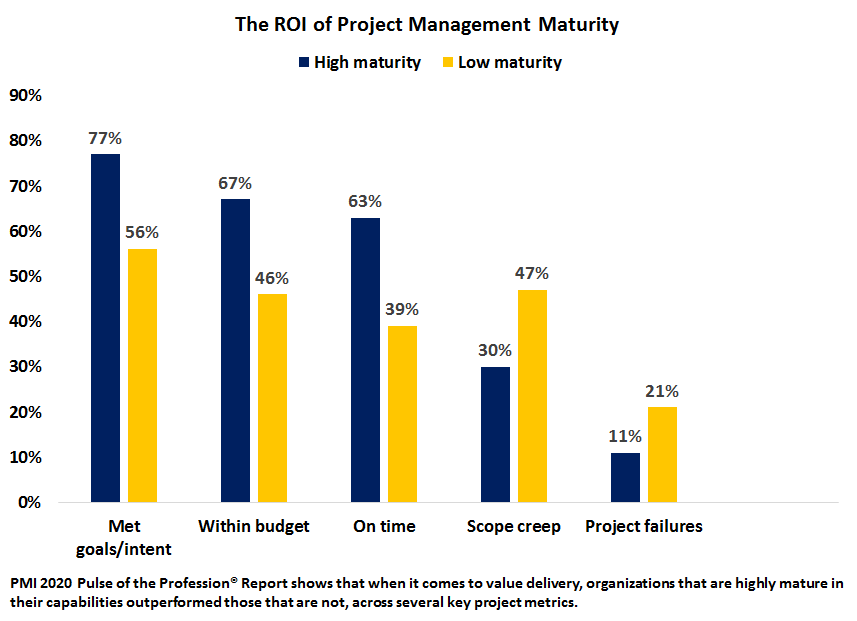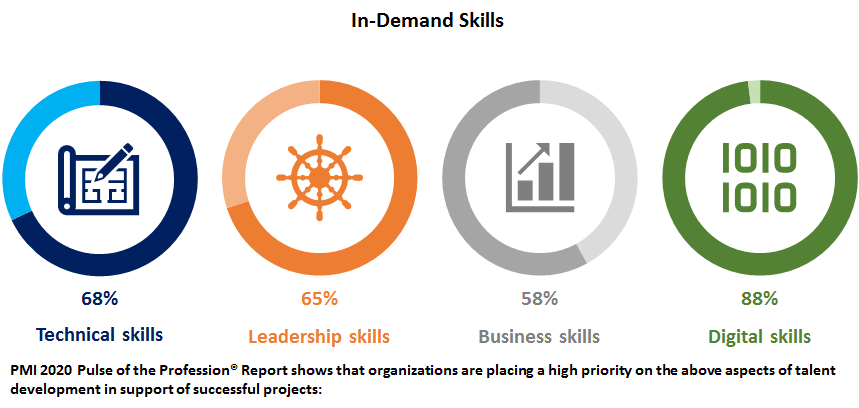THE NEW ECONOMY IS ABOUT PROJECTS
What is the Project Economy?
In its 2020 Pulse of the Profession® report, PMI called the project economy a “fundamental paradigm shift” for organizations. Essentially, it involves addressing most significant issues a company confronts through projects. These can range from changes in business operations to evaluating new markets.
The project economy requires project managers to lead motivated, multidisciplinary, cross-organizational teams. PMI argued organizations need these teams to foster change or run the risk of “not just treading water but sinking.”
Projects no longer operate as a sideline to “real” organizational operations. Instead, projects have become the driving force behind accomplishing work, innovation, and expansion. According to PMI, team membership includes those of various talents who deliver “financial and societal value,” according to PMI.
As part of Project Management Institute's 50th-anniversary renewal, it launched a new focus on what it is calling the Project Economy. President and CEO Sunil Prashara explain what this means – from the radical and disruptive changes the world needs to make, through business strategy and transformation, to the everyday professional. For For more European CEO videos, go to https://www.europeanceo.com/videos/
Create a culture focused on delivering customer value
An organization delivers business value and realizes benefits through the success of projects. Companies use project management to develop and sustain competitive advantages in today's volatile, uncertain, complex, and ambiguous environment.
A critical success factor for an organization to consistently deliver business results is to have a high project management maturity level. PMI 2020 Pulse of the Profession® Report shows that organizations that are highly mature in their capabilities outperformed those that are not across several key project metrics when it comes to value delivery. Project management maturity refers to the progressive development of an enterprise-wide project management approach, methodology, strategy, and decision-making process.
It starts at the portfolio level with the company vision and mission statements, internal and external analysis, formulation of business strategies, establishing business goals and business objectives. Executives need to ensure that they selected suitable projects and programs to implement business strategies.
expanding Skill Sets
Doing the right project right is about excellence in project and program management. A business strategy is as good as its implementation. PMI 2020 Pulse of the Profession® Report shows organizations are placing a high priority on the following aspects of talent development in support of successful projects:
- technical skills,
- leadership skills,
- business skills, and
- digital skills.



